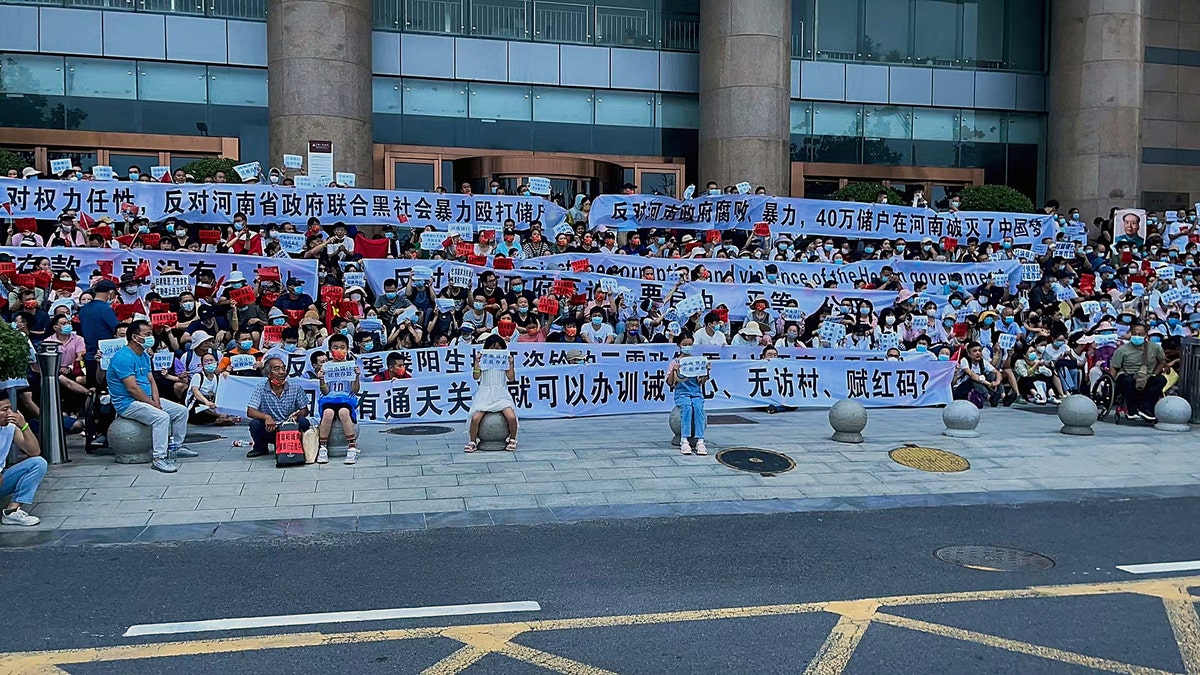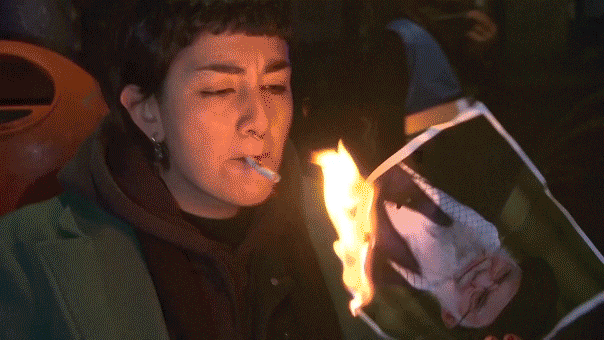Coming up on Monday, July 11 edition of 'Special Report'
Mike Emanuel gives you a sneak peek of the next show.
Chinese police "beat" citizens who gathered to protest against having their bank accounts frozen due to COVID-19 policies on Sunday, according to protesters.
Protests centered on three banks serving primarily rural communities that have frozen millions of dollars in accounts since April. Roughly 1,000 protesters gathered to call for the release of their funds outside the Zhengzhou branch of the Chinese Central Bank, but they say they were met with violence.
"I feel so aggrieved I can't even explain it to you," one protester, going only by the name Zhang, told Reuters.
"They did not say they would beat us if we refused to leave. They just used the loudspeaker to say that we were breaking the law by petitioning. That's ridiculous. It's the banks that are breaking the law," the demonstrator added.
CHINA POSES ‘BIGGEST LONG-TERM THREAT TO ECONOMIC AND NATIONAL SECURITY,' FBI DIRECTOR WRAY WARNS

In this photo released by Yang on Sunday, July 10, 2022, people hold banners and chant slogans during a protest at the entrance to a branch of China's central bank in Zhengzhou in central China's Henan Province. A large crowd of angry Chinese bank depositors faced off with police Sunday, some reportedly injured as they were roughly taken away, in a case that has drawn attention because of earlier attempts to use a COVID-19 tracking app to prevent them from mobilising. (AP Photo/Yang) (AP)
Even with more than a thousand protesters, police outnumbered the demonstrators roughly three to one, according to Zhang.
The Chinese government has opened investigations into the pair of banks, the Yuzhou Xinminsheng Village Bank and the Shangcai Huimin Country Bank, but has not announced further action.
The economic unrest comes as China is already attempting to stamp out clusters of COVID-19 outbreaks within its borders.
Officials in the city of Wuxi closed down in-person dining and many other indoor activities last week. Authorities are also encouraging residents to work from home and not leave the city.
China's "zero COVID" approach to the pandemic means even small outbreaks result in widespread lockdowns. The policy has led to unrest in Shanghai, where lockdowns lasted for months and access to food and other daily goods became severely strained.
Government officials touted that Shanghai was COVID-free in early June, but hundreds of thousands of residents remained in lockdown nevertheless.
CLICK HERE TO GET THE FOX NEWS APP
Authorities in Shanghai say the city suffered more than 500,000 cases between April and the end of May.








































